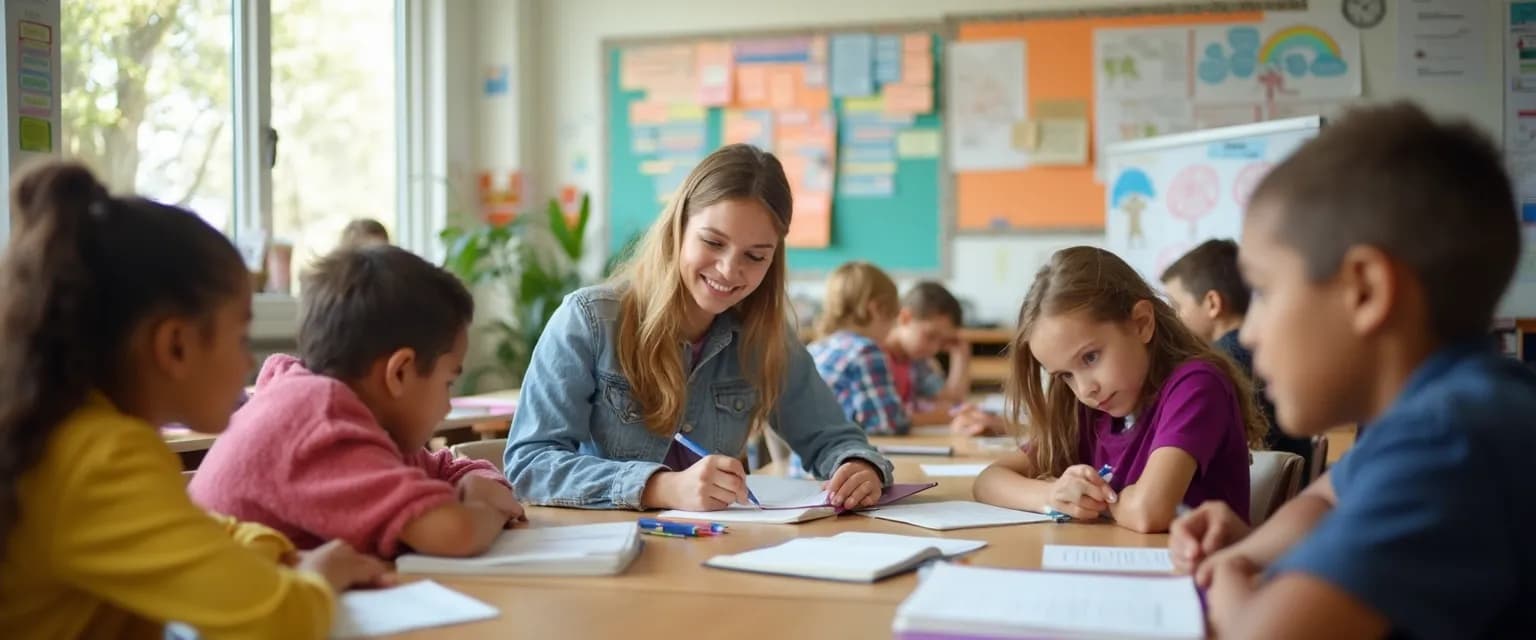10 Engaging Self-Awareness Activities for Students in Middle School
Middle school marks a pivotal time for developing self awareness for students. As tweens navigate the complex waters of identity formation, social dynamics, and academic challenges, building self-awareness becomes not just helpful but essential. The good news? Teachers can integrate activities that foster this crucial skill right into their everyday classroom routines without sacrificing valuable instruction time.
Self awareness for students creates a foundation for both academic success and emotional wellbeing. When students understand their strengths, challenges, and emotional responses, they make better decisions, form healthier relationships, and engage more deeply with learning. The following ten classroom activities offer practical ways to boost emotional intelligence development while supporting curriculum goals.
These self awareness for students exercises require minimal preparation but deliver maximum impact. Best of all, they're designed to fit seamlessly into existing lesson plans across various subject areas, making them accessible for busy educators seeking effective self awareness for students strategies.
Quick Self-Awareness Activities for Students During Regular Lessons
Incorporating self awareness for students doesn't require dedicated class periods. These activities take just minutes but build crucial skills:
Emotion Check-ins (2-3 Minutes)
Start class with quick emotion temperature checks. Students can use hand signals, emoji cards, or number scales to indicate their current emotional state. This simple practice helps students recognize feelings before they impact learning and provides teachers valuable insight into the classroom's emotional climate.
For maximum effectiveness, pair these check-ins with brief discussions about how emotions might influence learning that day, reinforcing the connection between self awareness for students and academic performance.
Subject-Integrated Reflection Prompts
Weave self-reflection naturally into subject material with prompts like:
- Math: "What strategy worked best for you in solving today's problems?"
- Literature: "Which character's decisions would you have handled differently?"
- Science: "What part of today's experiment challenged you most?"
These questions encourage students to examine their thinking processes, building metacognitive awareness while reinforcing subject content.
Strengths Spotlight Activities
Create opportunities for peer recognition through structured activities where students acknowledge each other's contributions. This builds self awareness for students through external feedback while fostering positive classroom culture.
Try "Strength Stars" where students anonymously write positive observations about peers that get shared at week's end, helping students see qualities in themselves they might overlook.
Real-World Connection Moments
Dedicate five minutes for students to connect lesson content to their personal lives or interests. This strengthens not only content retention but also helps students recognize their unique perspectives and learning preferences – key components of effective self awareness for students techniques.
Measuring Growth in Self-Awareness for Students
How do we know if these self awareness for students activities actually work? Look for these observable indicators:
Students demonstrating improved self awareness for students will increasingly use "I" statements when discussing challenges ("I struggle with remembering formulas" versus "Math is impossible"). They'll also show greater precision in identifying emotions beyond basic "good" or "bad" descriptors.
Teachers can track progress through simple observation charts noting how students describe themselves, respond to feedback, and articulate their needs. The best self awareness for students programs create measurable growth in three key areas:
- Emotional vocabulary expansion
- Accurate self-assessment of strengths/challenges
- Appropriate help-seeking behaviors
To encourage ongoing development, create visual reminders of self-awareness language and concepts in the classroom. A feelings vocabulary wall or success tracking systems keeps these skills visible throughout the school day.
Remember that self awareness for students develops gradually. Celebrate small shifts in how students talk about themselves and approach challenges. When a student moves from "I'm bad at writing" to "I need help organizing my thoughts before writing," that represents significant growth in self-awareness.
The most powerful self awareness for students guide is a teacher who models these skills authentically. When educators openly discuss their own thinking processes, emotional responses, and growth areas, they normalize self-reflection as a valuable lifelong practice.
By implementing these ten activities consistently throughout the school year, teachers create classrooms where self awareness for students becomes part of the daily learning experience rather than an occasional add-on. The resulting improvements in emotional regulation, interpersonal skills, and academic self-knowledge equip middle schoolers with essential tools for success both in and beyond the classroom.




